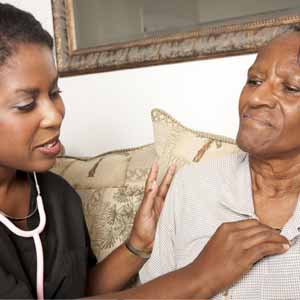
-
What Vaccines are Recommended for Seniors?
It’s flu season. Maybe you’ve already been hit in your household by the flu, or another viral illness. I know my family has. Hopefully, your family has escaped unharmed and will continue to do so. Either way, you’ve probably considered getting vaccinated. If you’re uncertain about vaccines, or unsure of what’s even needed, this quick guide is designed to get you pointed in the right direction.
Before I go any further, I need to point out that speaking with your family’s doctor about vaccines is going to be far more helpful than this blog. They know what you need and what will be the most helpful for you and your family’s unique set of circumstances. Before you get a vaccine, talk with your doctor about what’s best for you as an individual.
What follows is general advice based on CDC guidelines for the most common vaccines recommended for older adults.
COVID-19
The COVID virus has changed several times over the five years or so since the pandemic first hit. You might have been up to date with your vaccination, but the CDC recommends that people aged 50 and older get this shot updated each year. Younger people may also want to consider getting this vaccine.
Flu
The CDC recommends that people aged 50 and older get the flu vaccine each year. Like COVID, the flu changes a little bit from year to year. Older individuals are at a heightened risk of complications from the flu, including death. Additionally, research indicates that people who are vaccinated against the flu are about 30 percent less likely to suffer a heart attack.
Like the COVID vaccine, younger populations should talk with their doctor and consider the flu vaccine.

The CDC recommends certain vaccines for seniors–but it’s important to talk with a doctor first. Shingles
The shingles vaccine is recommended for people that are 50 and older. For those of us that have had chickenpox as kids, we already have the shingles virus inside of us. It’s painful and can be crippling. The vaccine is associated with a lower risk of dementia.
Pneumonia
The CDC recommends a one-time vaccine for the pneumococcal virus for those that are 65 and older. If you are 50 to 64, the CDC recommends this vaccine if there are specific underlying medical issues already present. This is a risky illness as about one in six elderly individuals that get pneumococcal meningitis pass away from it.
If you have Medicare Part B, your cost for the vaccine should be completely covered.
Tdap
Most people receive Tdap shots when they are children, but the CDC recommends that this is updated once every ten years, especially for seniors. It protects against tetanus, diphtheria, and pertussis, commonly referred to as whooping cough. Like other vaccines, if you’re not sure when you last had this booster, it’s a good idea to have a conversation with your doctor.
RSV
The RSV vaccine is recommended for people over 75. It is a one-time vaccine. Oftentimes, we associate RSV with infants and toddlers, but RSV is just as dangerous for the elderly. Vaccinations also help prevent the spread of RSV to those that are most likely to suffer from complications due to the virus.